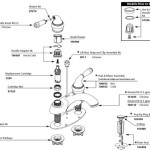Bleeding When Going To The Bathroom
Rectal bleeding is a common problem that can affect people of all ages. It can be caused by a variety of conditions, some of which are serious and require medical attention. However, many causes of rectal bleeding are minor and can be treated at home.
The most common cause of rectal bleeding is hemorrhoids. Hemorrhoids are swollen veins in the anus or rectum. They can cause pain, itching, and bleeding. Other causes of rectal bleeding include:
- Anal fissures
- Ulcerative colitis
- Crohn's disease
- Diverticular disease
- Colorectal cancer
- Gastrointestinal bleeding
- Medications, such as aspirin, ibuprofen, and warfarin
In most cases, rectal bleeding is not a sign of a serious medical condition. However, it is important to see a doctor if you experience rectal bleeding, especially if it is accompanied by other symptoms, such as:
- Pain
- Itching
- Swelling
- Constipation
- Diarrhea
Your doctor will perform a physical examination and ask you about your symptoms. They may also order tests, such as a colonoscopy or sigmoidoscopy, to determine the cause of the bleeding.
Treatment for rectal bleeding will depend on the underlying cause. For example, hemorrhoids can be treated with over-the-counter creams or suppositories. Ulcerative colitis and Crohn's disease can be treated with medications that reduce inflammation. Diverticular disease can be treated with a high-fiber diet and exercise.
In some cases, surgery may be necessary to treat rectal bleeding. For example, surgery may be necessary to remove hemorrhoids or to repair a fistula. Colorectal cancer is usually treated with surgery, chemotherapy, and radiation therapy.
If you experience rectal bleeding, it is important to see a doctor to determine the cause. In most cases, rectal bleeding is not a sign of a serious medical condition. However, it is important to get treatment to prevent the bleeding from becoming worse.
Preventing Rectal Bleeding
There are a number of things you can do to help prevent rectal bleeding, including:
- Eating a high-fiber diet
- Drinking plenty of fluids
- Avoiding constipation
- Getting regular exercise
- Losing weight if you are overweight or obese
- Avoiding straining during bowel movements
- Using hemorrhoid cream or suppositories if you have hemorrhoids
By following these tips, you can help reduce your risk of developing rectal bleeding.
Blood In Stool 15 Reasons For Cause Of

Blood In Poop Why It Happens When To Be Concerned

When To Worry About Blood In Stool

Blood In Stools What Does It Mean Healthway Medical

When To Worry About Blood On Toilet Paper After Pooping

What Causes Gastrointestinal Bleeding And How Serious Is It Really Mayo Clinic News Network

What Causes Blood In Stool And Vomit

Why Am I Pooping Blood But There S No Pain

When To Worry About Blood In Your Stool Could It Be Cancer Md Anderson Center
Blood When I Wipe 7 Causes And How To Treat Them







